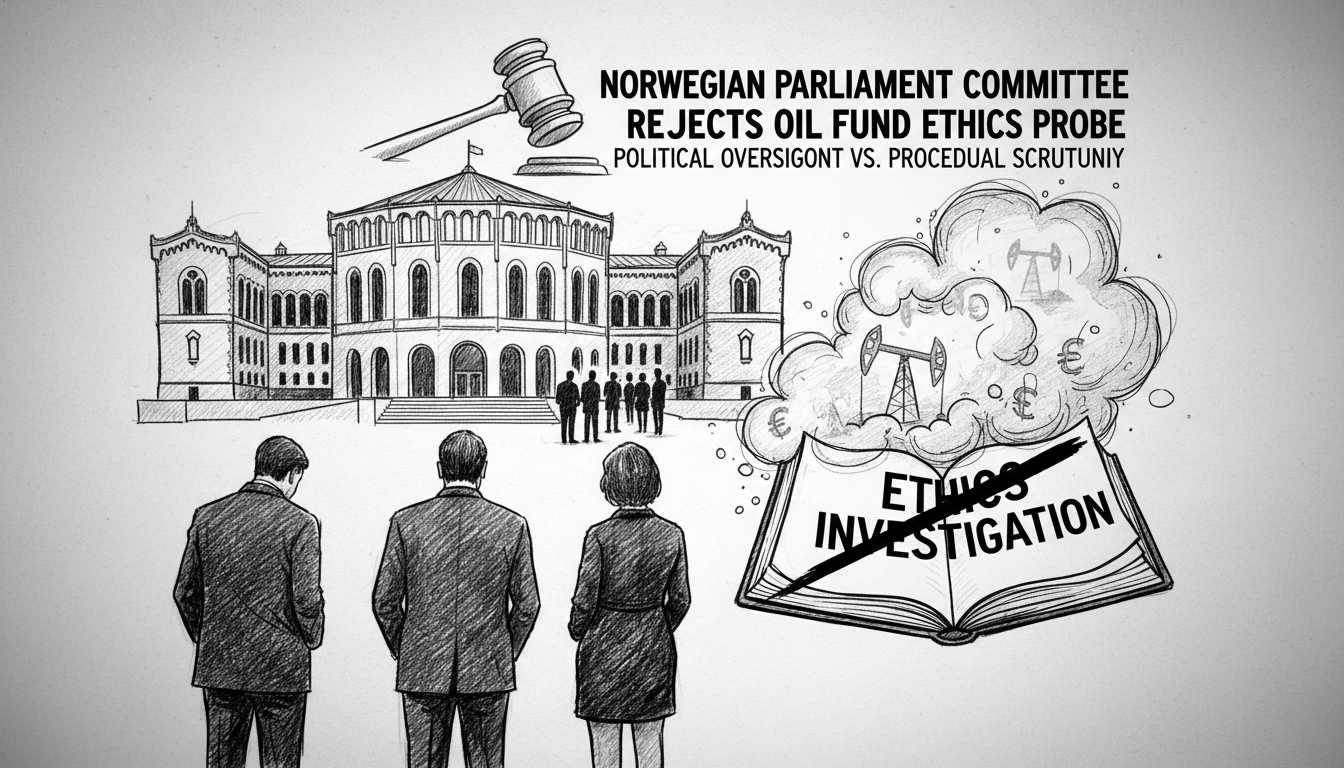A Norwegian parliamentary committee has decided against investigating the finance minister's handling of recent changes to the Government Pension Fund Global's ethical guidelines. The Control and Constitutional Committee concluded the matter represents a political question rather than grounds for formal scrutiny.
Committee chair Per-Willy Amundsen stated the parliament had already made a clear decision with broad majority support. He emphasized the committee's role focuses on oversight rather than second-guessing political decisions once they are made. The parliament has no obligation to conduct extensive investigations before reaching decisions, Amundsen noted.
This decision follows requests from five organizations last week asking the committee to examine whether Finance Minister Jens Stoltenberg violated procedures when he skipped public consultation on ethics framework changes. The Finance Department had denied these allegations.
The controversy began when the finance minister secured parliamentary majority support for ethics framework modifications on November 4. These changes created tension among several coalition partners. Stoltenberg stated the intention was to avoid excluding some of the world's largest companies from the oil fund's investment portfolio.
Days later, the government established an altered management mandate and temporary ethical guidelines without conducting standard consultation processes. The background involves a cleanup of oil fund investments that Stoltenberg initiated following summer controversies about investments in companies contributing to Israel's military operations in Palestinian territories.
Before Tuesday's meeting, it appeared the committee might question the finance minister about the missing consultation. This would have represented the first step toward a potential control case. Committee member Ove Trellevik had indicated some questions would be natural, with further action depending on responses received.
However, the committee ultimately decided against pursuing the matter. Only members from the Socialist Left, Red, and Green parties supported questioning Stoltenberg. They needed support from two additional members of the 14-person committee, where the Progress Party and Labour Party each hold four seats.
The Socialist Left, Red, and Green parties expressed disappointment with the committee's decision. Red Party representative Hege Bae Nyholt had hoped the committee would seriously address the organizations' concerns and determine whether Stoltenberg followed proper procedures.
Green Party representative Julie Stuestøl called it fundamentally problematic that a minister could rush through such serious matters. She believed the committee should have addressed this regardless of agreement with the specific policy changes.
Centre Party's Geir Pollestad supported the decision not to proceed further. He expressed concern that questioning the minister could establish a difficult precedent, potentially leading to excessive oversight of matters that properly belong to government responsibility.
This situation highlights ongoing tensions in Norwegian politics between proper procedure and political decision-making. The oil fund's ethical framework remains a sensitive topic that frequently generates debate about Norway's role in global markets and ethical investment practices.
The committee's decision reinforces the boundaries between political oversight and administrative procedure in Norway's parliamentary system. It demonstrates how established political majorities can limit further scrutiny of decisions once they are formally adopted.
Norwegian political observers note this reflects the balance between accountability and efficiency in governance. While some argue for thorough examination of all procedures, others emphasize the need for decisive political action without constant second-guessing.
The oil fund's ethical guidelines have evolved significantly over time, reflecting changing global standards and Norwegian public opinion. This latest controversy shows how difficult balancing ethical considerations with practical investment decisions remains for the world's largest sovereign wealth fund.

